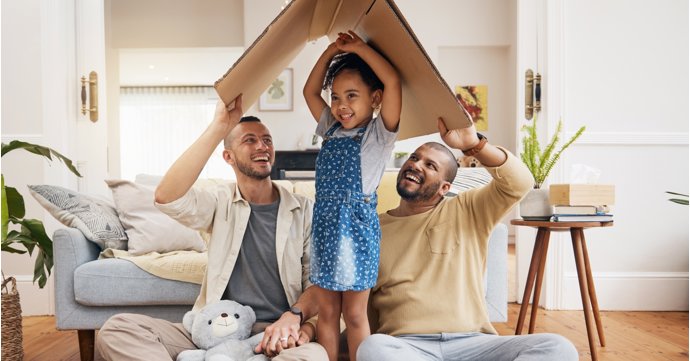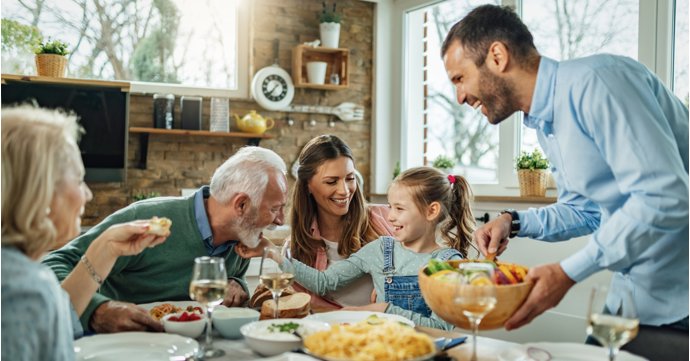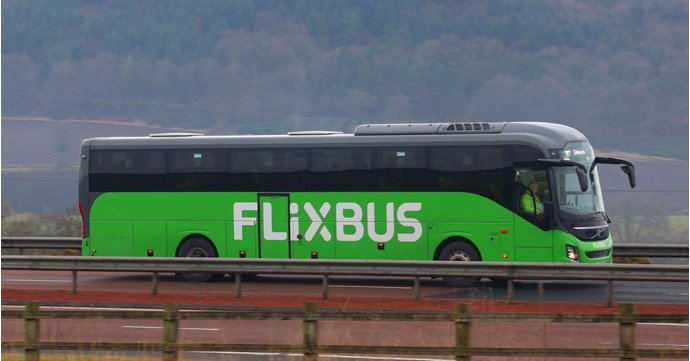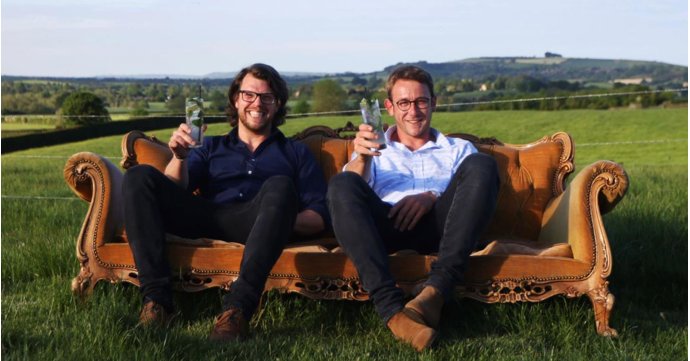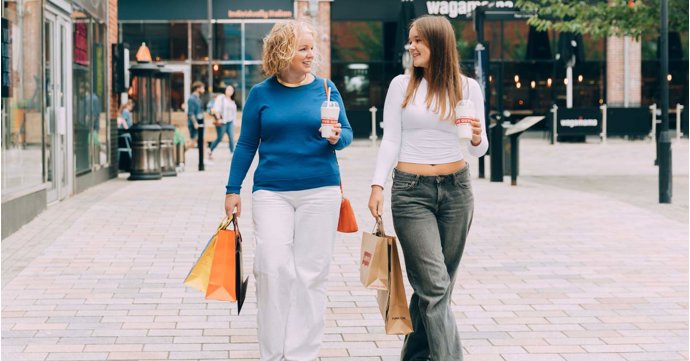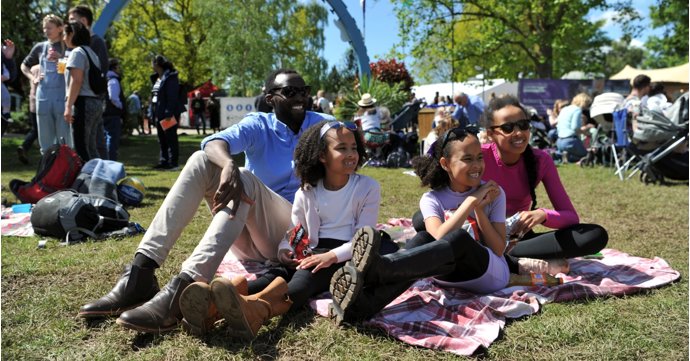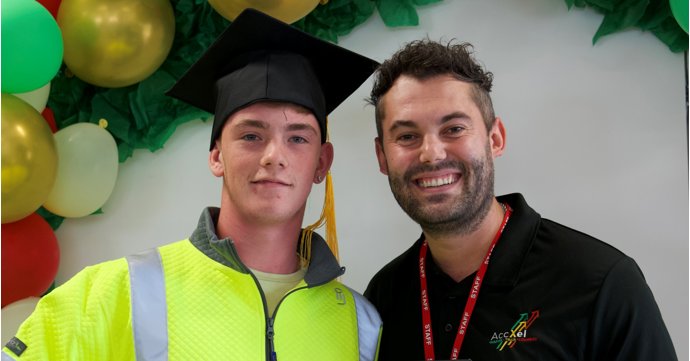There are currently nearly 900 children and young people in care across Gloucestershire and finding local foster carers is essential to keeping them in the same school and area as their friends and family. Fiona Norton, from the fostering recruitment team at GCC Fostering, is helping to guide those with an interest in fostering to decide whether it might be the right step for them, with her informal online fostering information webinars.
SoGlos caught up with Fiona to hear more about how easy it is to sign up to attend an information session, how relaxed and informal they are and how regularly they run throughout the year.
What motivated you to become involved in fostering and leading information sessions?
I've been a social worker for 20 years in frontline child protection and then also in fostering. And I took this role on in the last year where I'm on the front door of fostering, so really talking to members of the public who are thinking potentially about becoming foster carers.
I had to push myself out of my comfort zone to do it, I must admit, but I really love speaking to people and helping them. It's great to be able to get people to think about fostering and talking them through what fostering might look like in their home. It's really interesting speaking to new people from all parts of the county.
I'm really passionate about fostering. I've seen foster carers really transform children's lives. They provide an amazing service and I really take my hats off to them, they're really there for the children and it can make such a big difference to their lives.
How does someone sign up to attend an online session?
It's really simple. All they need to do is send an email to fostering@gloucestershire.gov.uk; or they can phone in and speak to either myself or my very lovely colleague Jude. We're always on the end of the duty phone and that's (01242) 532654.
There are other ways as well — you can visit our web page on the Gloucestershire County Council website and fill out a form. All we do after is send a link out so people can then join the session.
Are they any requirements for those wanting to attend the session?
The best thing for people to do if they're worried that they might not be suitable, is to get in contact with us and chat. That is exactly why Jude and I are here.
But we are looking for foster carers from all walks of life. So whether you're single or part of a couple; whether you've had children and they've left home, or might even have children at home still; or you might not have children; whether you rent or own your own home. We're always looking for people from different backgrounds and ethnicities and cultures. We're looking for a range of people.
There's not many circumstances in which you can't foster. Obviously there's some criminal history we can't accept, but sometimes even a criminal history can be OK. It would have to go before our panel but we would talk to somebody about it. But the main thing is that we're not looking for perfect people, we are looking for people who have lived life.
We have people come forward who might have been in care themselves in their own childhoods. We find that sometimes these particular people can bring a lot of empathy from their own experiences.
What can someone expect when they attend the online fostering information session?
So it is run by myself and then we always have a foster carer on the call. So that's somebody who's had lots of experience in fostering and they can then share their experiences on the session — so you hear first hand accounts, which is great.
We don't ask our foster carers to sugarcoat things, we would like them to give a realistic view of fostering because it has its rewards as well as its challenges.
It lasts about an hour and a half, we play a couple of little videos and I stop at times along the session for people to ask questions. But equally if people don't have questions, then that's absolutely fine and attendees can choose whether to have their camera on or off. The choice to speak is also entirely up to them.
It's very informal, very relaxed. If people want to have a cup of tea, that's absolutely fine. We quite often find that people's pets end up jumping on to their laps during the session, things like that. You know, it's just life.
We talk a little bit about why children come into the care system as this is something that can make people a little bit unsure. We really reassure people that we offer a lot of support and guidance around this. We're not expecting our foster carers to manage situations on their own without backing.
We also discuss some of the different types of fostering. So I mention some of our specific schemes: we've got Launchpad, which is helping accommodate asylum seeking children; then we have parent and child fostering, providing a safe and secure home for a parent and their child; then we also have Family Link which is a short break service where children who have complex health needs or disabilities are provided with daytime or overnight support, linked with a family who are able to support them.
We also talk a little bit about how a child comes to live with a family, because I think some people come into fostering thinking that they can't say no or that a child's just placed with them without any consideration — and that isn't the case. The foster carer would always read the profile of the child. Foster carers could speak to the social workers and then agree whether or not to take a child, so that is within their control.
We also run through a little bit about the differences between fostering for Gloucestershire County Council and independent fostering agencies.
Of course, we go through the support that we offer our foster carers. And so I always say to people coming on the webinar that I want them to go away from this feeling that they are very supported and that they're not doing this on their own because there is lots of support, whether it's Christmas Day, bank holidays, the middle of the night... There's somebody there.
Do you recommend that people do any preparation prior to the meeting?
No, this is absolutely the first step. And we completely appreciate that we have people who will come on this call and won't then choose to foster. And that's absolutely fine. It is just for people to hear more about it and then either think, yes, this is something that I could take to the next step and want to pursue — or perhaps it's not for me either, and that's absolutely fine. The sessions are literally a sounding board for people to find out more without committing to anything initially.
Can you highlight some of the most common questions or concerns raised by potential foster parents during your sessions?
Some people are worried that they can't foster for a particular reason, so they ask questions around that. Some people are worried about the sort of children that they might look after.
I think it's generally their circumstances that people are worried about, and whether they're going to be good enough. We reassure people that if you're thinking that, then you probably are.
It's having that core care, patience and understanding of the children.
And there's a lot of training specifically for this available through GCC isn't there?
Yes there's lots and lots of support for foster carers. Fostering has changed so much in my time as a social worker and the things that we have now in fostering in Gloucestershire are really great. For example, we hold a conference once a year.
This year it was held in the Gloucester Rugby Stadium. We had really amazing speakers come to talk to all the foster carers. We have around 250 foster carers in Gloucestershire and they were all invited. We had a really good turnout — and there's some inspiring training happening during these events.
There was an incredible speaker who was an occupational therapist who works with the under fives — so really young children — on a lot of sensory issues, so it's really practical. It discussed a lot of children who have experienced trauma in their childhood and how they have missed out on certain stages of development. So, for example, if a child's been strapped in a pushchair for a lot of the time, then they will have missed out on a lot of movement. And so there's little games you're taught that you can play with them and things that you can do that will really help bring their development on and catch up on those missed stages.
In your opinion, what are the most rewarding aspects of fostering, and how do you convey these to your audience?
Sometimes children need a little bit of time. If you think of the changes that they've had in their lives... After a few weeks of a child being with you, seeing that child starting to take on board some of the things that you're saying and seeing little changes — it can just be the tiniest thing, learning to tie a shoelace or coming back from school with a good report. You know little things like that, where they've really been struggling before.
So I think it's these aspects. They are such big wins in the fostering world and our foster carers really see that and that's great.
We had a lovely story where one of our foster carers took a teenager in for a couple of years whilst he was really in need and she really didn't feel she'd made that big of a difference to his life. She didn't really see that. But a few years later, she came home to a box of chocolates on her doorstep and a little note from him to say he just wanted to let her know that he remembered all the advice that she'd given him and really appreciated what she did for him at the time. And so although she felt she hadn't made a difference at that moment, she realised she had, and she was really touched.
Foster carers make huge influence in children's lives and they might not even realise it but just by providing a safe home and the normal sort of things that we expect all our children to experience in typical family life, it has an incredible impact.
When are the next information sessions?
We run around three sessions a month, varying between online and in-person.
The next online information sessions are on Wednesday 20 March; Tuesday 2 April; Monday 15 April; and Monday 22 April 2024 and they last around 90 minutes.
The next in-person events are on Friday 22 March 2024 at Gloucester Farmers' Market; and Saturday 18 May 2024 at Cheltenham Pride at Cheltenham's Imperial Gardens.
For more information, visit gloucestershire.gov.uk/fostering.



